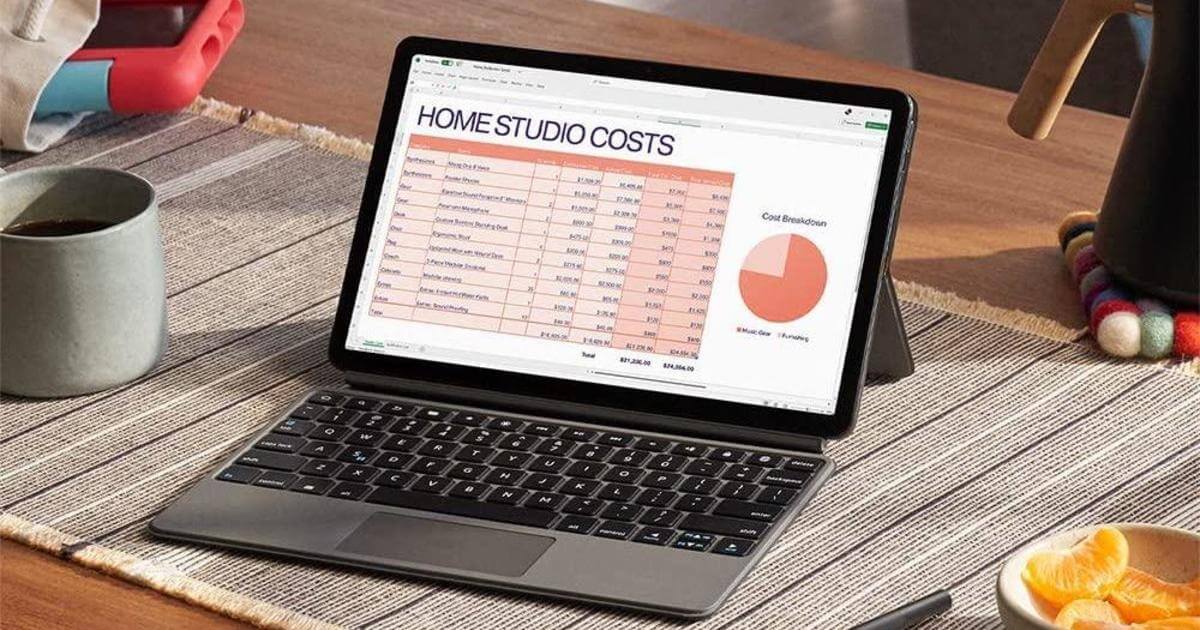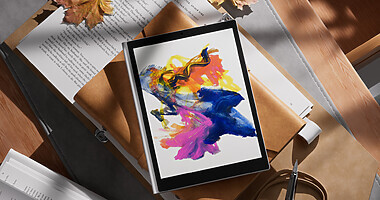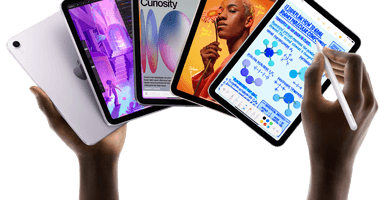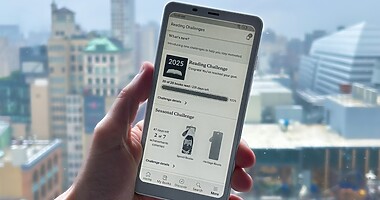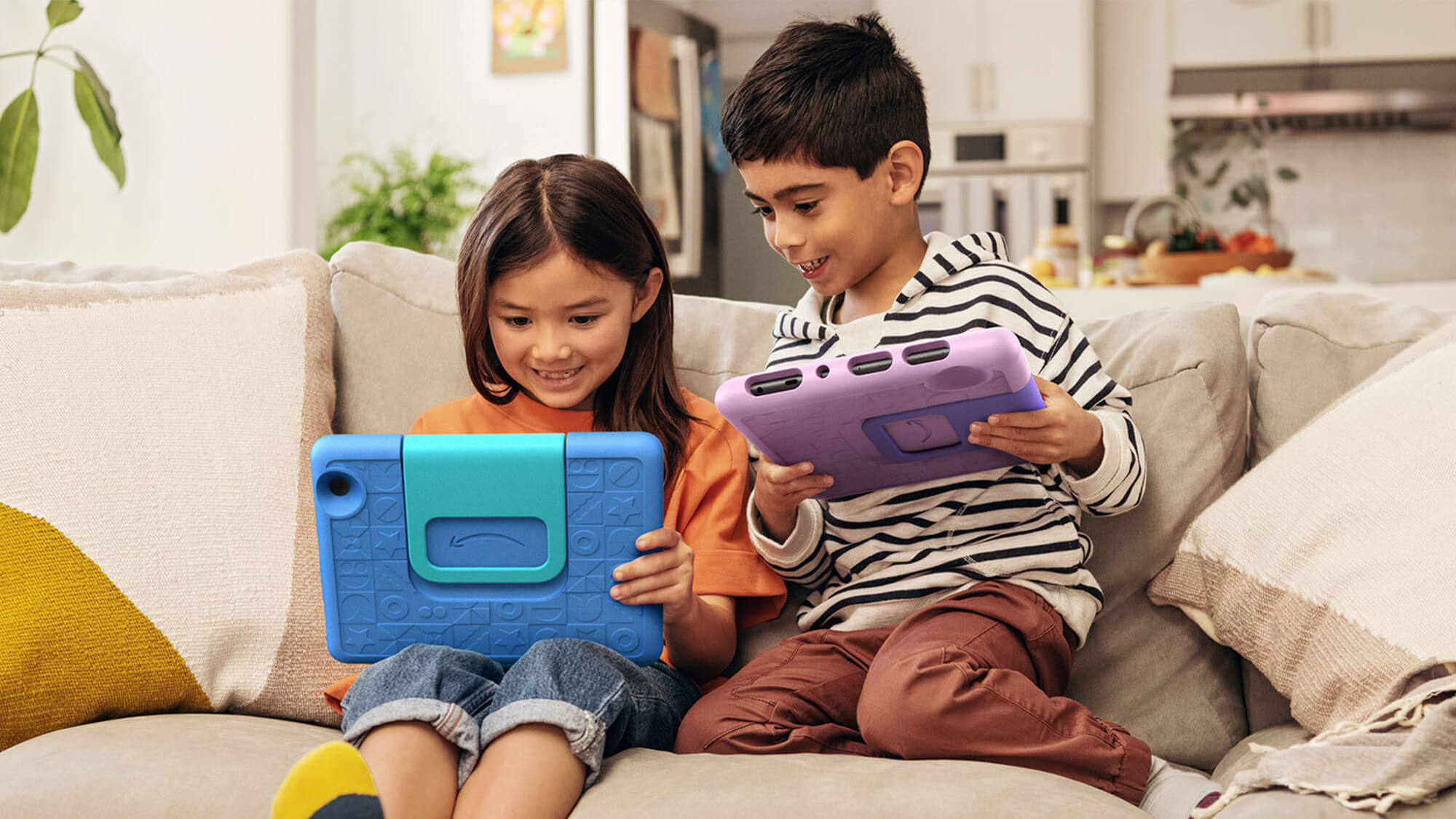Amazon has recently unveiled its latest offering, the Fire Max 11 tablet. Priced at $229.99, the latest addition to the Amazon Fire tablet series boasts an impressive 11-inch screen with a resolution of 2000 x 1200 pixels which makes for a pixel density of 213 PPI. It is equipped with a powerful octa-core MediaTek processor that is coupled to 4 GB of RAM, and 64 GB of storage. The tablet also offers a microSD card slot and promises a battery life of up to 14 hours.
For an additional $100, customers can purchase a stylus and a keyboard that serves as a back cover as well as a stand. The keyboard case bears a resemblance to Apple’s Magic Keyboard Folio designed for the 10th-generation iPad. It attaches magnetically to the back of the Fire Max 11 tablet and features an adjustable kickstand that allows for various viewing angles. Connecting to the Fire Max 11 via pogo pins, the keyboard section incorporates 15 shortcut keys and a trackpad with gesture support.
As for the stylus, it is an active pen with more than 4000 levels of pressure sensitivity, enabling users to draw, write, and navigate apps and menus with precision. Amazon also highlights its handwriting recognition capability, which can convert handwritten notes into regular text. The stylus is equipped with a battery that Amazon claims will last approximately six months before needing a replacement. The product page also highlights the compatibility of the tablet with the Microsoft 365 suite of apps. All of this points to Amazon being keen to project the new Fire Max 11 as a productivity-oriented device designed to stoke the creative side of you.
Interestingly, as 9to5Google pointed out, the new Fire 11 Max tablet seems to embody what Google envisioned when it proclaimed that “Android Tablets” were the “future of computing.” Google has expressed its belief in the potential of stylus-first applications and large touchscreens that are not physically connected to a keyboard, envisioning new and innovative use cases. The company has even suggested the possibility of tablets surpassing laptop sales, with affordability playing a crucial role in this shift.
On the software front, Google has been diligently optimizing Android, with a focus on larger screens, since version 12L. More than 50 first-party apps have been updated to support large-screen devices, including foldable, marking a significant improvement compared to previous years.
On the hardware side, Google is set to launch the Pixel Tablet next month. However, it seems that the Pixel Tablet might not align precisely with Google’s original vision of Android Tablets as the future of computing. Instead, it is the Amazon Fire Max 11 that more closely embodies this vision, thanks to its affordability and Amazon’s extensive retail presence. While physical keyboards remain the go-to for office productivity, the Pixel Tablet lacks an official first-party equivalent. Additionally, it is surprising that Google did not announce its own stylus, opting instead for general USI 2.0 support.
It appears that Google views the Pixel Tablet as a smart home product and a successor to the Nest Hub, leaving room for another model to fulfill the role of a true productivity-oriented tablet. A Pixel Tablet Pro could serve this purpose, but even more intriguing would be a Pixel Tablet A-Series that focuses on providing a satisfactory media consumption experience while also delivering decent productivity capabilities with a keyboard accessory. By targeting affordability rather than premium pricing, Google could effectively fulfill its ambition of Android Tablets becoming the successor to laptops, directly competing with Chromebooks.
The Pixel Tablet is priced at $499, but a more affordable A-Series tablet priced around $349, which includes a keyboard at the very least, would likely strike the perfect balance. Currently, the upcoming Google tablet seems to be primarily geared towards productivity, accounting for about 49 percent of its purpose, thanks to optimized Workspace apps, with the remaining 51 percent dedicated to serving as a Nest Hub and media consumption device. However, Google has yet to demonstrate its ability to deliver an affordable, large-screen tablet that excels in running Google Docs smoothly. Given the success of the Pixel A-Series phones, it is not far-fetched to believe that Google could create an exceptional tablet if it wholeheartedly pursued this endeavor.
With a keen interest in tech, I make it a point to keep myself updated on the latest developments in technology and gadgets. That includes smartphones or tablet devices but stretches to even AI and self-driven automobiles, the latter being my latest fad. Besides writing, I like watching videos, reading, listening to music, or experimenting with different recipes. The motion picture is another aspect that interests me a lot, and I'll likely make a film sometime in the future.

